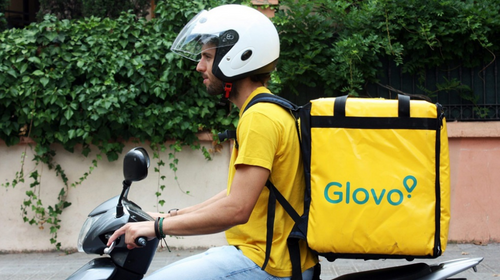The European Commission, the executive arm and competition watchdog of the European Union, has imposed a hefty €329 million fine on Delivery Hero, a German food delivery giant, and its Spanish subsidiary Glovo, for violating antitrust regulations. The penalty stems from a clandestine cartel-like agreement between the two companies, spanning from 2018 to 2022, a period during which Delivery Hero held a significant minority stake in Glovo, ultimately acquiring 94% control in July 2022. This illicit collaboration aimed to stifle competition, manipulate market dynamics, and bolster their respective positions within the burgeoning European food delivery landscape.
The Commission’s investigation unearthed a series of anti-competitive practices employed by Delivery Hero and Glovo, including the exchange of commercially sensitive information, the implementation of “no-poach” agreements for employees, and the strategic division of national markets. These tactics, designed to minimize competition between the two entities, ultimately deprived consumers of choice, limited opportunities for workers, and hampered market innovation. The companies, operating major food delivery platforms across Europe, admitted their involvement in these illicit activities and agreed to settle the case by paying the imposed fines.
Delivery Hero, which operates in numerous countries globally, including a substantial presence within the European Economic Area (EEA), has been slapped with a €223 million fine, while Glovo, active in over 20 countries with a significant footprint in the EEA, must pay €106 million. The case underscores the Commission’s commitment to upholding fair competition within the EU and sets a precedent for challenging anti-competitive practices facilitated through minority shareholdings. EU competition chief Teresa Ribera highlighted the significance of this case, emphasizing the anti-competitive use of Delivery Hero’s minority stake in Glovo to orchestrate and enforce the illicit agreement.
A key aspect of the cartel involved the systematic exchange of confidential data pertaining to pricing strategies, commercial plans, operational capacity, and cost structures. This exchange enabled both companies to gain an unfair advantage, coordinate their market activities, and avoid direct competition. Furthermore, the companies implemented a “no-poach” agreement, initially targeting managerial positions but eventually encompassing almost all employees, with the exception of delivery drivers classified as self-employed. This agreement restricted employees’ ability to seek better opportunities and hindered wage growth, constituting a significant breach of antitrust regulations. This marks the first time the Commission has directly penalized a no-poach agreement, setting a clear precedent against such practices that limit employee mobility and wage competition.
The culmination of these anti-competitive tactics was the carving up of national food delivery markets. By July 2020, Delivery Hero and Glovo had effectively eliminated competition between themselves in several key markets, limiting consumer choice and potentially contributing to inflated prices. This strategic division of territories stifled market dynamics and deprived consumers of the benefits of a competitive landscape. The Commission’s intervention serves as a stark reminder of the potential consequences of collusive behavior and the importance of maintaining a level playing field in the marketplace.
Delivery Hero has publicly acknowledged the settlement with the Commission, confirming that it had already allocated provisions for the anticipated fine. The company’s acceptance of the penalty signifies a recognition of its wrongdoing and a commitment to complying with EU competition law. This case highlights the vulnerability of fast-growing digital markets to anti-competitive practices and underscores the need for robust regulatory oversight to protect consumers, workers, and the overall health of the market. The Commission’s decisive action sends a clear message to other companies considering similar tactics, emphasizing that such behavior will not be tolerated and will be met with significant penalties.














